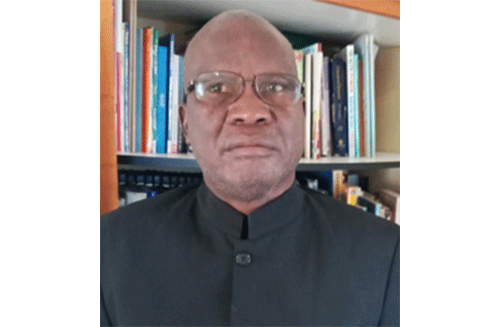The General Assembly of the United Nations on 20 November 1989 adopted the Convention on the Rights of the Child which was ratified and signed by sixty-one countries. Namibia could not sign the convention then, as she was not independent but became a signatory later. The mandate and obligations of the convention are that member countries are expected to implement them. The convention inserted Article 28 which is very explicit about the provision of education as a human right by all member states and can be paraphrased as follows: “States shall recognise the right of every child to education by making primary education compulsory and available free to all. States should also encourage different forms of secondary education including general and vocational education. They should make higher education accessible to all on the basis of capacity by every appropriate means.” Whereas Article 20 of the Namibian constitution, caters for compulsory and free primary education, it seems the government does not constitutionally commit itself seriously to provide tertiary education. Article 20 only gives the right to individuals to operate colleges and other institutions of tertiary education at their own expense registered with the government department and in accordance with acceptable standards of tertiary institutions funded by the State. In efforts to maintain acceptable standards, the ministry of education has put in place mechanisms that regulate these institutions like the Namibia Qualifications Authority and course development body like National Institute of Education Development (NIED). Today, NQA boasts of having approved more than 60 tertiary institutions. This is a step in the right direction, for a young nation like Namibia whose education system was deliberately inferiorated by the South African Bantu education system. It is crucial and important that Namibians should receive education, but the question which should be answered is the type of education which should be provided to the nation. The provision of education for self-reliance has failed, as this can be evidenced by a recent scenario reported in the Namibian newspaper of 18 February 2022 in which 300 applicants were queuing for a teaching post at Izimwe Primary School in the Zambezi region. What does this portray about our education system 32 years after attaining nationhood? It really says a lot; either the education system has failed to deliver or simply incompetence of the highest order. It becomes a laughing stock to the world, especially to countries that knew that Namibians were clamouring for better education before independence. What is also compelling is to realise and know that Namibia is abundant with natural resources with a small population, yet the education system is failing to deliver. The natural resources and the people could have performed miracles during the thirty-two years of nationhood in ushering quality education at all levels and improve the lives of all Namibians. Whereas the proliferation of tertiary institutions is a welcome gesture, care should be taken to ensure that these bodies provide and offer quality education. There is no point in opening tertiary institutions in every village when there is a critical shortage of lecturers manning such institutions, if those institutions are private and depend on fees paid by students. Countries which have allowed numerous tertiary institutions to open and operate ended up having institutions in name and on paper without students and lecturers. In such cases, lecturers go month after month without salaries, which ultimately leads to frustrated lecturers which in turn culminates into disillusioned students. This in itself leads to both time wasting and money being thrown into the bottomless pit. In these institutions, the money paid is never refunded as it is squandered to cover the institutions’ other expenditures. Currently, Zambia with a population of about 16 million is boasting of more than 60 private universities without including its colleges and vocational trade schools. South Africa with a population of about 55 million has been merging its universities in order to improve the quality of education. Despite its economic woes, Zimbabwe with a population of about 16 million has maintained its quality standard of education with few tertiary institutions. Namibia seems to be following Zambia with a bigger number of tertiary institutions, which is intended to make tertiary education accessible to every Namibian. But it becomes worrisome when some tertiary institutions in Namibia are bent on lowering the standard of education for the sake of money. The original idea of creating tertiary institutions was for the love of knowledge and creating knowledge and theories. It was research and critical thinking which elevated the status of education and brought developments and inventions which the world enjoys today. If tertiary institutions lower the standards for the sake of money, Namibia will forever remain a backward country education-wise and permanently dependent on other countries even for simple jobs like teaching and nursing. The ministry of higher education and NQA should work hand in hand in monitoring the standard of education being offered by the tertiary institutions. It is not enough to approve the programmes offered by these institutions in offices, but officers should be visiting the institutions to ascertain the curricula in the lecture halls. In other countries, should the theory presented by the institutions on paper fail to match with practice in the lecture halls, then the institution is closed only to reopen when the required standard is maintained, a situation which affects both students and lecturers.
2022-02-252022-02-25By Prof Makala Lilemba


